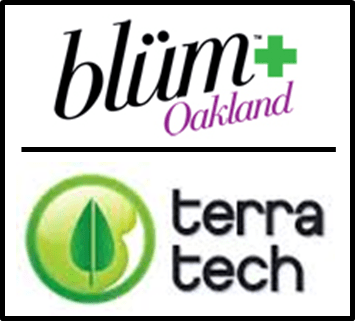By Omar Sacirbey
Following an anti-climactic launch to New York’s medical marijuana program last week in which some dispensaries did not see a single patient, the state’s licensed MMJ companies say they expected a slow start and will be able to survive until patient numbers pick up.
“We had very low expectations for patient counts early,” said Steve Stallmer, a spokesman for Etain, which opened two of its four dispensaries Jan. 7, the first official day of the program. Neither of the dispensaries saw patients that first day.
Through Jan. 12, there were only 105 registered medical marijuana patients and 203 certified doctors in the state, according to the New York Department of Health, which oversees the medical marijuana program.
Marc Gromis, an attorney near Buffalo who recently opened a law firm specializing in cannabis, blamed the lack of patients on a complicated registration process, and said the dearth of certified physicians was due to marijuana’s federally illegal status. “There are many doctors here who are leery of getting involved with a Schedule I drug,” Gromis said.
Stallmer acknowledged that modest expectations were “further tempered” by the fact that the state has not made public the list of doctors certified to recommend medical marijuana so far.
Despite the current shortcomings, it was still imperative that Etain opened for business when it did, Stallmer said.
“It’s something we had to do. I don’t think we wanted to wait until we had a sufficient number of patients,” Stallmer said. “I think it’s a good thing that the state put a tight deadline on everyone so we could at least get to the point where we are now, and we expect it will continue to ramp up as more doctors get registered, and more patients find out where those doctors are.”
His positive outlook was shared by other cannabis company officials.
PharmaCann was not worried about the low patient numbers either, said Nick Polsinelli, managing partner of Polsinelli Public Affairs, a business development firm contracted by the company.
“We’re confident in what we’re doing. As we continue to educate people about medical marijuana, we’re confident we’ll see an increase in patient numbers,” Polsinelli said. “We need to give this program time to get off the ground.”
The early phase of a new program is not indicative of what the future will hold, said Ari Hoffnung, CEO of Vireo Health of New York.
“There’s a tremendous amount of education and awareness that needs to happen on the physician side and on the patient side, and that process will take several months to play out,” Hoffnung said. “We’re committed to New York for the long term. We believe the market opportunity is substantial.”
Company officials said that they have enough capital to go a long period with a small amount of customers, and also didn’t have to worry – at least for the near future – about new competitors taking market share.
“This is an exclusive license, so it’s not like there’s going to be five more businesses that come onto the playing field,” said Stallmer. “You have that playing field in front of you, you know where your competitors are.
Etain has also taken measures to control costs during this early period, Stallmer said.
The company has been careful not to overproduce so product is not sitting on dispensary shelves, and has kept both hours and hires down. For example, the same pharmacist and security staff work at both dispensaries that are open, one in Albany and the other in Kingston.
They work at one location during the first part of the day, and then drive about 75 minutes to the other location which opens in the second part of the day, Stallmer explained.
“We knew it would be slow and small. For that reason we didn’t make a whole lot of hires early,” he said. “At the beginning we chose to keep costs as low as possible until the product really ramps up.”
Once more patients register, Etain will be able to expand hours and hire more employees, Stallmer said.
Polsinelli said PharmaCann would like to see more ailments added to New York’s qualifying conditions list.
“Currently the program leaves out thousands of patients who are in desperate need of this healthcare. As more science surfaces that supports the efficacy of this treatment, I think you’ll see more patients signing up,” Polsinelli said.
The state should also expand the ways patients can consume medical marijuana, attorney Gromis said. Smokable marijuana is currently prohibited; dispensaries are only able to sell capsules as well as oils and tinctures that can be vaporized or used in inhalers.
Gromis said he expects many people to petition the state to add ailments to the qualifying conditions list, and said that despite the current ratio of cultivation sites to patients, New York will eventually need to award more marijuana licenses. The current program has awarded licenses to five companies who can each operate one cultivation site and four dispensaries.
“There’s a lack of conditions. There’s a lack of strains. There’s a lack of consumption modes. There’s a lack of dispensaries,” Gromis said.
Omar Sacirbey can be reached at omars@mjbizmedia.com




